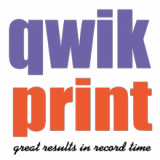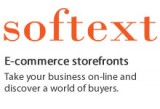CASH FLOW IS KING…
by Joanne Sarrasin
The axiom may sound like a cliche, but is effective in communicating a business concept that should be understood by all business owners. Too often profitable companies go out of business because they run out of cash, not because they run out of work.
Small owner-managed companies in particular, should understand the difference between profits and cash flow. Simple practical strategies can go a long way to ensuring long term success: invoicing and collecting from your customers on a timely basis, managing your accounts payable, and knowing how much cash you have on hand at all times.
There are three categories of cash in-flows and out-flows:
Financing – Bank Line of Credit and Personal Resources
Investments – Machinery and Equipment
Operations – Sales, inventory Purchases and Other Expenses
This article focuses on strategies to improve operational cash flows. One important assumption is that your company is profitable. You understand your costs and your products and services are priced to generate a profit. Without profits none of the suggestions below will make a difference in the long run.
INVOICING YOUR CUSTOMERS
You are busy selling and making sure customers are happy with their products and services, but you procrastinate about the administrative task of invoicing them. In this case, sales are great and assuming products and services are well priced, you are making a profit. But, if you don’t invoice your customer you are not going to get paid.
- Be disciplined about invoicing. Invoicing should be done at least weekly. Ideally, invoices should be generated as soon as products are delivered and services performed.
- Email your invoices instead of sending through regular mail to speed up the processing time.
- If you think that your time can be better spent on generating new business, then hire someone to take care of this… you can only wear so many hats and be successful.
COLLECTING YOUR RECEIVABLES
You are diligent about invoicing your customers, but no one is keeping track of who has paid and following up.
- Clearly communicate your payment terms right on your customer’s invoice.
- Have a collection process in place when payments are overdue… sending a simple reminder email to your customer is a simple first step in a collection process.
- Offer different payment methods in line with your industry practices… cheque, credit cards, PayPal, bank EFT and ACH. Keep in mind the associated costs for these services and make sure to build them into your prices.
- Carefully consider terms extended to your customers: obtain credit information from your customers before extending terms, consider early payment discounts, request deposits and progress payments for long-term projects.
KNOWING WHO YOU OWE AND HOW MUCH
Managing your supplier credit can be a tricky balance between taking advantage of payment terms, delaying payment as long as possible, and keeping a good relationship with your suppliers. But getting a call for payment from one of your key suppliers is never a good strategy. Late payment fees can become expensive and difficult to negotiate with certain vendors (ie. utility companies, CRA)
- Record supplier invoices in your accounting records on a regular basis…. at least weekly. You need to know who you owe and how much so you can manage your payables.
- Whenever possible take advantage of credit terms extended by your supplier. If they give you terms of Net 30 days, paying in 40-45 days is acceptable in most industries.
- Plan to do cheque runs on a routine basis. Set a schedule that is convenient to you. Weekly might be too much, but you should have a look at your payable listing at least every two weeks.
- Payroll taxes, GST/HST and other government liabilities should always be paid on time. Non-payment can be expensive and disruptive.
KNOWING YOUR AVAILABLE CASH
You need to how much cash is available in order to pay your supplier. Looking at the balance in your bank account is not the right place to figure that out. You may have written a cheque that has not cleared yet. Bouncing a cheque is expensive… your supplier might want to be paid up front next time and bank fees can add up quickly.
- Rely on your accounting records to figure out your available cash, but be diligent about recording deposits and cheques written.
- Reconcile your accounting records to your bank balance at least once a month…. weekly if cash flow is tight.
- Prepare and update your cash flow projections on a regular basis. Your cash flow projections should cover at the least the next six months. Financial statements provide invaluable information about your profit levels, but is not a substitute for cash forecasts.
Business owners need to juggle many aspects of their business and often struggle with or neglect cash flow management. Implementing a few basic cash flow strategies can go a long way in ensuring long term success.
Joanne Sarrasin is president of Owen Sound based Sarrasin Accounting & Management Services. After leaving public accounting (resigned from Canadian Institute of Chartered Accountants in 2008), Joanne was employed in finance/accounting management roles, primarily with large and medium-sized businesses, including seven years with Chrysler Canada.



